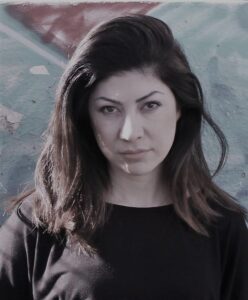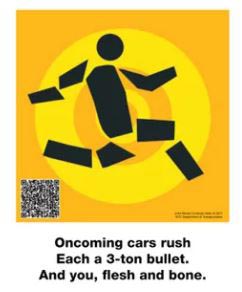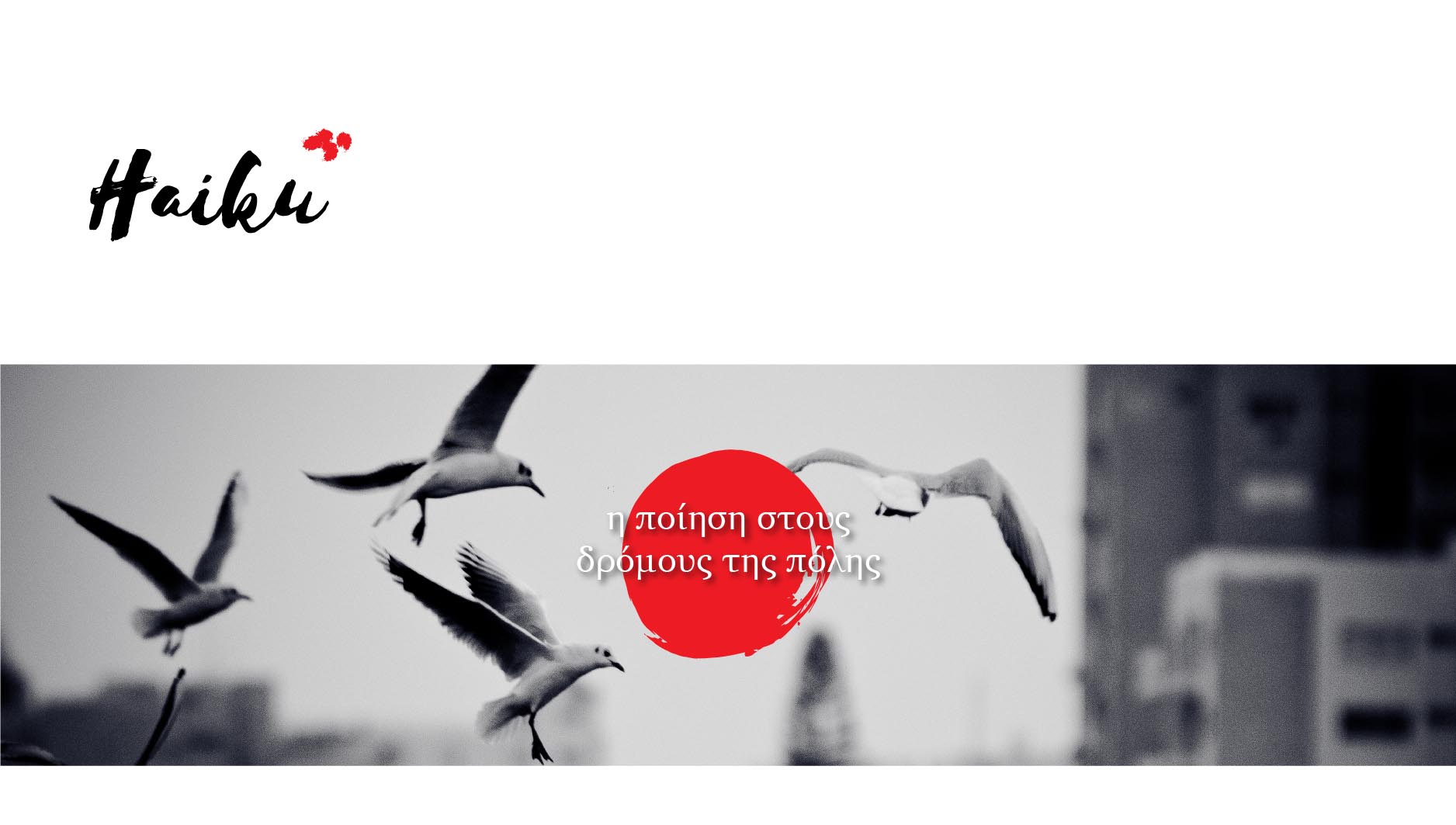The lovely haiku, just 17 syllables, is pure poetry. ALIX NORMAN finds out more about a project bringing this ancient Japanese literary form to the streets of Nicosia

Erato Ioannou
Poetry has power. In New York, haikus have stopped traffic. In the early 2000s, the City Department of Transportation used simple poems on street signs, the idea being that people were more likely to pay attention to this unusual form of warning. A few years later, Atlanta artist John Morse used haikus nailed to streetlamps (in the style of advertising campaigns) to raise awareness of the urban condition. And just last year, the Poetry Society of America painted haikus on walls across Brooklyn in tribute to African-American author Richard Wright.
“Haikus, which originated in Japan, are a magnificent form of literature,” says Erato Ioannou. “At just 17 syllables, in a 5-7-5 format, they’re short, fast, rich, and exciting; bold and often thought-provoking. And when posted in an urban environment, their impact is only increased – they hold a strong message that often stays with the reader long after they’ve moved on.”
As chair of Room For Art (a non-profit organisation that promotes Old Nicosia as a cultural destination for writers, artists and researchers), Erato is co-organiser of the Haikou – Poetry in the Streets of the City project: an effort that will see the humble haiku brought into the streets of Nicosia.
“Haikus will appear where no-one expects them – in the streets, in front of cafés and restaurants, outside grocery stores, and next to bus stops,” says Erato. “And literature will start to infiltrate our lives as never before.”
With funding from the Cultural Services of the ministry of education, and support from both the Nicosia municipality and the Embassy of Japan, the project aims to see poetry permeate the capital, and, by extension, its citizens.
“The value of art in contemporary society is indisputable,” Erato explains. “One comes across architecture, sculpture, painting, music and even performing arts in everyday life; they’re not forms we need to consciously seek out by visiting museums, galleries, or theatres.

One of the public haikus used by the New York traffic department
“But literature? Well, that’s a very different matter. Literature requires that the individual take their own initiative; in order to enjoy the beauty of words, one must actively pursue one’s passion by reading a book or a magazine, for example, or searching on the internet.”
With Haikou, organisers are giving “everyone, from children and teenagers to adults of all ages, the opportunity to immerse themselves in the joy and satisfaction that words can offer when placed within the urban environment. Where they will,” Erato suggests, “become part of a cooperative process: the writer of the haiku who has left their message for the world to see, and the reader, who builds upon the philosophy within their own experience.”
While the project has various parts, including a digital workshop for those who are interested in learning more about haikus, it’s the street poetry that will inevitably garner the widest audience. Especially as the publically-displayed poems will be the winning entries in an open competition…
“We’re inviting members of the public to send in their haikus,” explains Erato. “The competition runs until April 20; we’ve already had hundreds of entries, and hope to receive hundreds more.”
Entries – which can be submitted on the Room For Art website, through a special form – should be in standard Greek or Cypriot dialect, says Erato, in order to ensure the poems are accessible to the general public. They can cover any subject, but must adhere to the three-line, 5-7-5 syllable format: 17 syllables in total.
“We’ll select the winning entries by mid-May,” Erato clarifies, “and then display them in and around Old Nicosia for an entire month, from June to July.”
With the help of Nicosia Municipality, the project will exhibit the roughly 30 winning entries on large boards across the capital. “Each board will have a specific location – in Ermou Street for example, amidst the tables and chairs at a café; or outside the Municipal Theatre; or on the walls of Stasinou – and each will display the haiku, the name of its author, and a graphic design inspired by the poem itself.”
This public display of poetry, she suggests, meets not just a need for literature, but also for art. “There is a need for art in general; in spite of the fast pace of our lives, we always seek expression and solace through art. More specifically, literature as an art form is something that comforts and inspires us: in it, we see a reflection of ourselves; what worries us, what keeps us awake at night, what consoles us when we’re grieving. It helps us to feel we’re not alone. How many times have we read a sentence or two and seen our own life encapsulated within, our personal emotions mirrored in the words? Literature, and especially poetry, is a conduit to connection.”
Erato hopes the project will inspire budding poets to sit down and write (and submit) a few haikus. And, with a view to the future, she’s planning a large-scale event in which the project will be presented in front of authors, authorities, and the general public…
“In other cities, you’ll find literature – be it prose or poetry – permanently in the streets: on walls, on bus stops, even on traffic signs,” she acknowledges. “So we’re hoping that, with ‘Haikou’ and its accompanying presentation, local authorities will recognise the public value of such an initiative.
“If New York can cut traffic incidents with poetry, and Atlanta can help its residents feel less alone with a simple ode, surely a well-placed haiku can bring a lasting love of literature to Nicosia!”
For more information, email [email protected], or visit www.roomforart.eu or the Facebook page ‘Room For Art’







Click here to change your cookie preferences